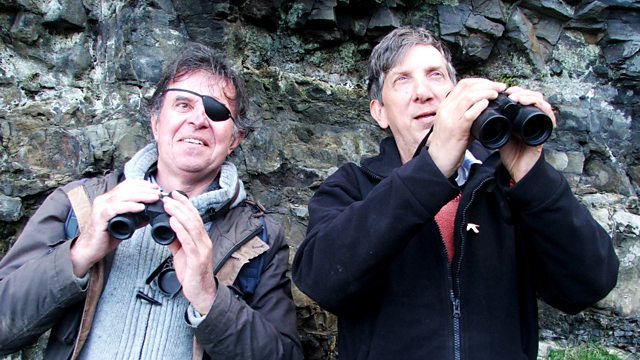5. Mudflats and Salt Marshes
Brett Westwood and Phil Gates find mud shrimps and sea lavender on Northumberland’s mudflats and salt marshes. From 2016.
What attracts so many birds to gather on those vast expanses of coastal sea mud around our coast?
Brett Westwood joins naturalist Phil Gates on the Northumberland coast and after wading carefully across a slippery bed of popping seaweed, they explore the sticky ooze of the mud flats, to discover it teeming with life; food for wading birds.
As well as cockles and lugworms, there are much smaller mud snails and mud shrimps. The latter are tiny crustaceans, very elongated with enormous antennae like “curved crane jibs” which are found in vast numbers (a conservative estimate is 10,000 per square metre) swimming on the surface in liquid mud or hiding out in tunnels below the surface.
This rich source of food explains why so many birds gather here to feed; birds like the smart looking shelduck; a duck which is almost the size of small goose but lays its eggs in underground burrows!
Away from the mud, slightly higher up the shore on the salt marsh, Brett and Phil discover sea lavender, a plant which has a clever way of dealing with high salt levels by excreting salt crystals onto its leaves giving them a greyish sheen and a salty taste!
Recording by Chris Watson
Producer: Sarah Blunt
First broadcast on ����ý Radio 4 in April 2016.
Last on
More episodes
Previous
Next
You are at the last episode
Broadcasts
- Fri 1 Apr 2016 13:45����ý Radio 4
- Sat 20 Aug 2016 15:15����ý Radio 4
- Fri 29 Mar 2019 14:15����ý Radio 4 Extra
- Sat 30 Mar 2019 02:15����ý Radio 4 Extra
- Fri 6 Sep 2024 09:30����ý Radio 4 Extra

